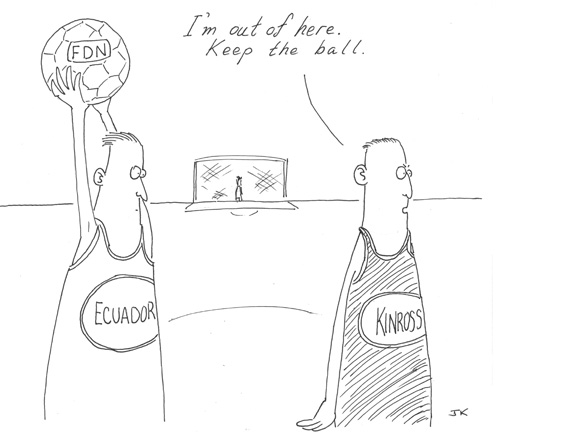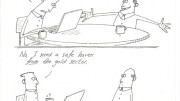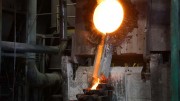Kinross Gold’s abandonment of the Fruta del Norte gold project in the face of an obstinate Ecuadorian government is a sad end to what could have been a wonderful, mutually beneficially relationship between Canadian miners and their partners in Ecuador.
Like so much in mining, it’s a story that has a long arc.
In 1999, Ecuador went through the worst crisis of its modern history as a result of an accumulation of bad government policies over the three previous decades and 1998’s devastating El Niño storms, which wiped out much of Ecuador’s infrastructure.
In the aftermath of El Niño, Ecuador was selling its oil production at just US$6 per barrel, and it didn’t have enough money to rebuild its infrastructure, which was key to getting its inland agricultural production to the coast for export.
As 1999 progressed, the private sector’s collapse caused banks to go under, which resulted in a run on deposits and the government to freeze over $2 billion in deposits, and suspend paying government employees’ salaries. Ecuador defaulted on its bonds, and hyperinflation was let loose, wiping out the savings of millions of Ecuadorians.
This crisis led to the election of President Gustavo Noboa and his reformist, pro-business agenda. In 2000, his team of technocrats overhauled Ecuador’s mining regulations to resemble Chile and Peru’s, with the intention of mimicking their success in attracting foreign direct investment from developed countries. The Canadian government and taxpayers chipped in too, helping Ecuadorians build a modern, capable mines ministry.
Lush, tiny and beautiful, Ecuador had never been much of a mining country beyond the sometimes intense artisanal gold workings seen in places such as the Nambija fields south of Cuenca, but for the new Noboa government, mining looked like a good way to diversify the economy from its over-dependence on oil and agriculture.
Mineral explorers were particularly keen on the southeastern border region, which had been off limits for decades owing to it being a militarized zone that saw skirmishes each year between the Ecuadorian and Peruvian armies. A lasting peace deal was signed by the two countries in 1998, which opened up the area for the first time to modern mineral exploration in 2000. The result was a string of spectacular discoveries, including Fruta del Norte by Aurelian Resources, and the large porphyries in the Corriente belt by the legendary David Lowell and Corriente Resources.
But living in a country with so little land underfoot, the ordinary populace is generally loathe to obliterate a small portion of it to unlock fleeting mineral wealth. That’s doubly true if mining is by open pit and entails the destruction of farmland, as was seen in the showdown over Ascendant Copper’s Junin project in 2006, which was won handily by the anti-mining locals.
But in Ecuador, it’s more than that: there is a populist streak that loves sticking it to the gringo and big multinational business. You can see it today in the Ecuadorian government giving WikiLeaks founder Julian Assange asylum in its embassy in London. Or think of Ecuadorian native Lorena Bobbitt — who gained worldwide fame in the 1990s for cutting off her cheating American husband’s penis — being soon afterwards celebrated at a special lunch at the presidential palace by Ecuadorian president and con man Abdalá Bucaram.
Encana experienced this less-than-welcoming side of Ecuador’s personality when it hit every kind of roadblock in trying, in good faith, to build a modern oil pipeline across Ecuador. The company eventually pulled out the country in 2005, selling its assets at fire-sale prices to Chinese companies.
A further swing to the left with the 2006 election and subsequent re-elections of President Rafael Correa, combined with much higher oil prices, have given the Ecuadorian government a much stronger negotiating hand than in its most desperate days in 2000.
Add to that the Chinese government’s willingness in the past few years to fund multi-billion dollar infrastructure projects in return for oil and gas concessions in the Ecuadorian Amazon, and you have a business environment today that’s much more hostile to traditional Western big businesses. We wouldn’t be surprised to see a Chinese company mining Fruta del Norte by the end of the decade.
But Kinross’ Fruta del Norte purchase was always seen as a high-stakes gamble. Our editorial at the time of the offer in July 2008 was entitled “Kinross’ bid for Aurelian: Brilliant or nutty?”
Five years later, we know the answer.






Hard to believe that Fruta Del Norte will not be mined – a world class gold deposit in a somewhat less than world class country